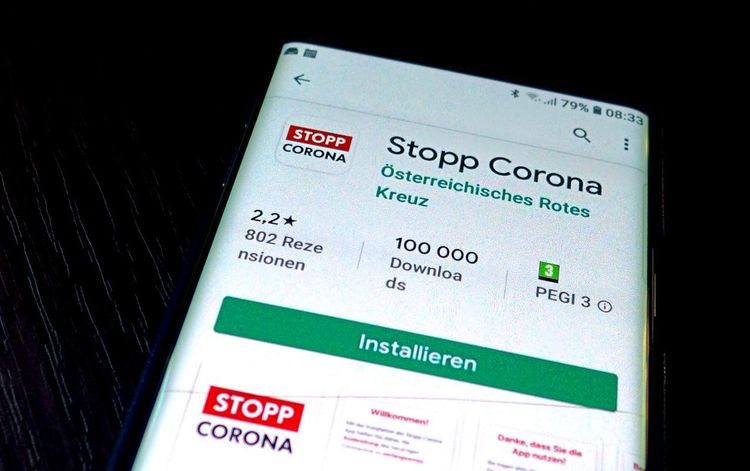After some Asian countries introduced tracing apps to deal with the Covid-19-crisis, several European countries have also started using it or plan to use it. In Austria we have the "Stopp Corona App" offered by the Austrian Red Cross. They say it has already been downloaded more than 560.000 times.
The contact tracing technology works in a way that after users tell the app whether or not they are infected, this information is communicated between devices that are in proximity so that users know if they have been in contact with people who are infected. In principle, but not necessarily, this information could also be shared with other parties such as the government or private companies.

Corona apps and related digital technologies such as AI and data science can potentially contribute to dealing with the Covid-19-crisis and similar public health problems, but the apps raise a number of ethical, legal, and societal issues. During the past months I have supported open letters to the governments of Spain, Belgium, and the Netherlands that call attention to these problems.
The danger of technological solutionism
Let me give a brief overview of some of the main ethical challenges. A first concern is of course privacy and data protection. Are the data only locally stored or centrally? Who has access to the data? Are the data anonymous or not? And, more generally, see from the side of the users: is it worth giving up some of our privacy for the sake of health?
However, even if that problem is dealt with (currently the Stopp Corona app may well be fine when it comes to privacy), it is questionable whether the app is the right solution for the problem, whether it is an effective solution, and whether it is proportionate to the problem at hand. Technology is not always the solution for every problem (known among experts as the danger of technological solutionism) and it is doubtful if the app actually works, for example if it is not used by most people, offers incorrect information, or gives a false feeling of safety.
Moreover, if the app is used, it may not be clear how long it will be used (is it limited in time?) and there is a risk that it will be used for other purposes later, for example for profiling people in the context of insurance. The app could also have unintended effects on the behavior of people and they may for example cheat and leave the app at home. And who is responsible when it all goes wrong?
Contribution to authoritarian tendencies
But the app does not only have individual effects; in the end it may contribute to societal changes. In general, measures during the Covid-19-crisis pose threats to the fundamental rights and freedoms of people. Authoritarian rulers or rulers with authoritarian tendencies are all too happy to use digital technologies to restrict the freedoms of people. But also in countries that call themselves democratic, including Austria, we see that fundamental rights such as the freedom of association have been limited in response to the crisis. In a liberal democracy, it is important to keep discussing whether such measures are necessary and justified. In this context, corona apps can contribute to authoritarian tendencies and the curbing of fundamental rights. The danger of a permanent surveillance society seems around the corner.
Beyond that, the apps can destroy trust between people and have the (unintended) effect that some people are avoid, stigmatized or discriminated, for example people who are identified as infected or people who do not use the app. The app also shows again the digital divide, also in European societies: not everyone has a smartphone or knows how to use it. What are the effects if only a digital elite adopts the app? Will they be more protected than others, given that they tend to live in proximity of each other?
Obligation or voluntary
From a democratic point of view, it is also important to have sufficient political support for the use of an app. While most Austrians are fine with the voluntary use of the app, in April a GALLUP poll showed that 72 percent of Austrians are opposed to obligatory use of the app. During the past days, the Austrian government seemed divided regarding this issue: some advisors have proposed obligatory use, whereas others have suggested a voluntary principle.
Finally, that the private sector contributes to dealing with the Covid-19-crisis is to be welcomed, and there are undoubtedly very good intentions, but given that the apps tend to be developed by private corporations whose main aim is to make profit, it is important to keep in mind the interests of citizens and public health. In Austria the "Red Cross" app was developed by Accenture and today Google and Apple are also involved in providing surveillance technology for dealing with the crisis – there is currently collaboration with them. If we go ahead with the app, we should make sure that these companies are not the only ones who benefit from it. (Mark Coeckelbergh, 19.5.2020)